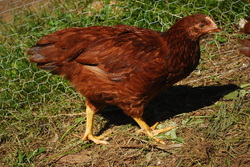 I started writing this post as a comment for an article on huffingtonpost.com (or more specifically as a comment on the other comments. You can read the article here.) Green Mountain College in Vermont is going to be slaughtering their farm's oxen team and using the meat to feed the students. This has created an uproar across the internet, seemingly mostly with people who don't go to the college. I wanted to elevate the discussion above finger pointing and name calling, because we're dealing with these same issues on our farm right now, and it can be helpful to have differing opinions. (Who woulda thunk it?!) In this internet world of forced brevity, my comment was too long to post (actually, I believe it was 386 words over the limit of 250). So instead of altering my thoughts to fit into their website, I'm altering the website where I write it, to fit my thoughts. Enjoy. Unfortunately, as usual these difficult issues seem to set people into a place of dictating to each other, rather than using questioning as a way to help clarify the issue for themselves. I would like to inject my voice here as a farmer in southern Vermont. I have been working on vegetable farms for 7 years now, and over the past 3 years my partner and I have started our own. Part of this process has been to start a flock of laying hens, and we also have plans of more livestock to come. I think something most people don't understand is that even if you don't eat meat (which I haven't for over ten years now), it's very hard to find examples of how to farm without needing animal inputs. The standard way to organically fertilize vegetable plots around here is to use animal (usually dairy cow) manure. Remember that in order for dairy cows to be lactating, they need to be calving for the duration of their productive life. If they have bull calves, they are usually used for meat (with the occasional exception used for breeding stock.) If you eat diary (and I do), you are linked into these processes. So let's assume that you don't want to use their manure. If you don't have the privilege (and most do not) to have extremely fertile alluvial soils, then the only way to support perpetual vegetable growth is to add fertility annually. Using plants as green manures is another option, though to do that you need to have large gas or diesel-powered equipment in order to incorporate all of the plant matter into the soil. That brings up a whole other side to this discussion, which is that the main alternative to animal manure is petroleum based fertilizer. I'm hard pressed to think of how that is a better option, considering the large scale environmental degradations associated with it. I think the important thing is for us to understand that there is no easy answer. In order for us to live, it requires the death of other creatures. There is no way around this fact of nature. So it would be helpful to give the discussion the level of serious consideration it deserves. I believe anyone who claims they have the obvious guilt-free solution hasn't truly looked into all parts of these processes. Our culture has divorced us from most of the basic parts of life sustenance, and it's hard to come face to face with them lacking informed context. Even though I haven't eaten meat in ten years, last week I killed my first chicken, because she was eating her eggs, and it's a habit that spreads through the flock if not removed. This was a very difficult thing to do, and I'm continuing to try to understand what it means for me. But, we all have to remember that farming is practiced in an economic context. We lose money on selling eggs unless the flock is highly productive. Even for farmers such as myself who are trying to live on as little money as possible, it's very hard to figure out a way to do so without these decisions being made. Anyone who thinks that this is not the case I would have to think is not trying to make a living at it themselves. I'm not to any place of final resolution. There are so many other ways that death is interlinked with farming that can't be given adequate space in a comment posting. I don't know that there is one single place we can arrive where this is agreed upon, or even understood within ourselves. But let's try to move in that direction by continuing to talk about it without stubbornly taking sides.
3 Comments
Lucy Chapman
10/21/2012 04:53:59 am
Thank you for bringing up this difficult topic without finger-pointing. I have struggled with the question of whether or not to eat meat for two-thirds of my life. During the past couple of years, thanks to discussions with Meg and Patrick, I've come to understand more layers of the complexity of the question. I admire you both for meeting the issue head-on, without a dogmatic approach, and with caring for all the creatures involved, humans included. As you say, we are indeed all interconnected.
Reply
2/25/2013 02:50:49 pm
My wandering thoughts bring me back here again, to one of the most thoughtful things I've read online in the last year. Thank you Patrick for your honesty and integrity in facing the challenges in your life, and your eloquence in communicating them.
Reply
Leave a Reply. |
Meggie
Recording moments from our journey on the Pacific Crest Trail. (All pre-2015 entries are Patrick's words on work and life at the homestead). Archives
March 2016
Categories |
 RSS Feed
RSS Feed
